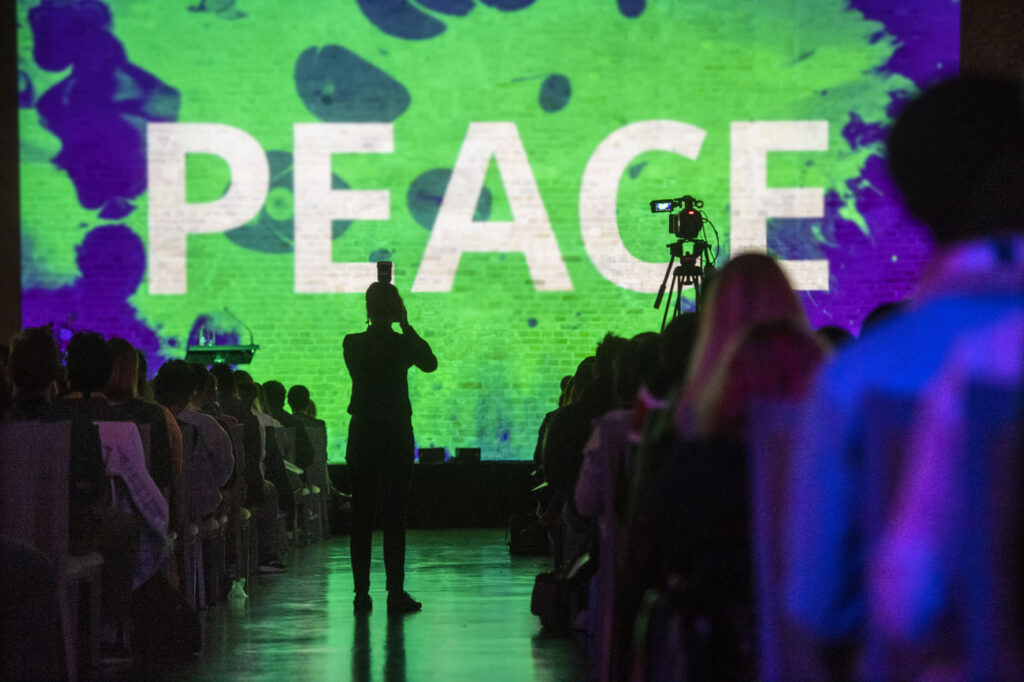History at War

When Russia invaded Ukraine on 24 February, and thus started the first full-fledged war against an independent nation state in Europe since the end of WWII, another war had already been going on for a long time.
The latest visible sign of this “other” war had been an essay by Vladimir Putin published on the website of the Kremlin in July 2021. In this essay, the Russian President denied the existence of Ukraine as an independent nation and instead claimed the unity of Ukrainians, Russians and Belarusians, belonging to what has historically been known as the triune Russian nation. This presidential vision of the past, dating back to Russia´s 17th century imperial history, is part of “professional” information warfare that consists of: the production of state-controlled historical master narratives, the implementation of so-called “history laws”, defining what is (and what is not) to be said and taught about the past, the distortion of historical facts and the abuse of history as a weapon in Russian state propaganda against Ukraine as a country and its citizens.
It needs to be said that Russia is not alone with its attempts to misuse and weaponise the past in domestic and foreign politics. There have been others within Europe who have followed similar paths in the context of rising populist movements and the search for simple answers to complex questions. But Russia clearly “professionalised” history wars as part of internal and external state propaganda on all levels, most explicitly since the annexation of Crimea in 2014, but also already in its 2008 war against Georgia.
Currently, it is impossible to predict how long the brutal war against Ukraine is going to last and how many atrocities will still be discovered. It is also impossible to predict when and under which conditions reconciliation between Ukraine and Russia will be possible, or if it will be possible at all. But it is clear that civil society needs to and will play a major role in countering the effects of military and ideological warfare. And we need to be prepared for it. These are some things that should be done:
- Develop formats in which we can continue to organise encounters that (re)create trust and mutual understanding among those who are ready to enter into an open and critical dialogue about meaningful ways to deal with conflictual pasts. We are deeply convinced that cross-border exchange “from below” on the level of individuals and civil society can contribute substantially to overcome (historical) traumata. International initiatives and networks initiated by Körber-Stiftung and partners from civil society – such as EUSTORY and Körber History Forum – might be a basis to further build on, although the current war poses a lot of challenges that will be difficult to overcome even for well-established initiatives like ours. Alienation, hostility and mistrust are just a few of these challenges, and we need to be very careful to make sure that all future formats we develop guarantee a safe space for everyone involved. Both the traumata of victims and the guilt of perpetrators need to be addressed openly in a trusting atmosphere.
- Differentiate between the Russian regime and its multiple policies of violence on the one hand and representatives of liberal Russian civil society opposing the official policies of the Kremlin and its supporters on the other. This will be crucial for developing future scenarios towards Russia. The suppression and elimination of liberal voices in Russian civil society has been going on for more than ten years now, and its latest “success” in the eyes of the Kremlin has been the dissolution of Russia´s oldest NGO, Memorial International, an organisation that Körber-Stiftung had partnered with in the framework of EUSTORY and beyond for more than 20 years. But we should beware of underestimating the existence of like-minded liberal civil society representatives originating from Russia, even if many of them have exiled themselves from their home country since the beginning of the Russian invasion of Ukraine. These forces need our support even more now.
- Rethink our dominant narratives of war and peace in Europe in the light of the Russian war against Ukraine. In Germany, for example, a deeply rooted awareness of historical guilt towards the Soviet Union that has long been equated with a historical guilt towards Russia has made it difficult to adopt a more confrontational stance towards the post-Soviet Russian State. The Russian attack on Ukraine initially triggered a far-reaching paradigm shift (known as Zeitenwende) with regard to both interpretations of the past as well as legitimisation of policies. We need to make sure that this paradigm shift endures and is operationalised meaningfully in the context of encounters and international dialogue among historians, politicians and representatives of civil society from different national backgrounds. For too long, the mainstream German debate has been focused on Russia only instead of taking notice of the variety of historical experiences and different threat assessments in other parts of central and eastern Europe, i.e. the Baltic States, Caucasus, Moldova and Ukraine. We need to eliminate our blind spots quickly and permanently.
- Join forces despite insecurities and unsettlements. Isolating all people living in Russia in general from international activities and cooperation would be a severe mistake. When navigating through the difficult upcoming months and years, civil society in Europe will need to become (even) more creative and share expertise and experiences in order to find new ways of cross-border collaboration in Europe, including, for example, the different diaspora groups and exile communities. We will be happy to welcome new partners who are interested in enriching our activities in the field of critically reflecting on history and politics in Europe.
Authors


